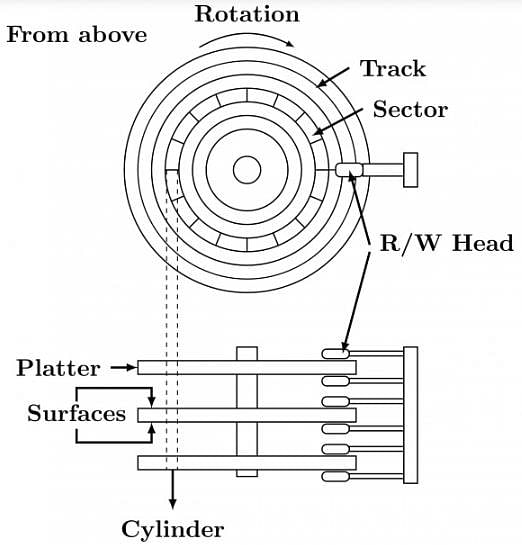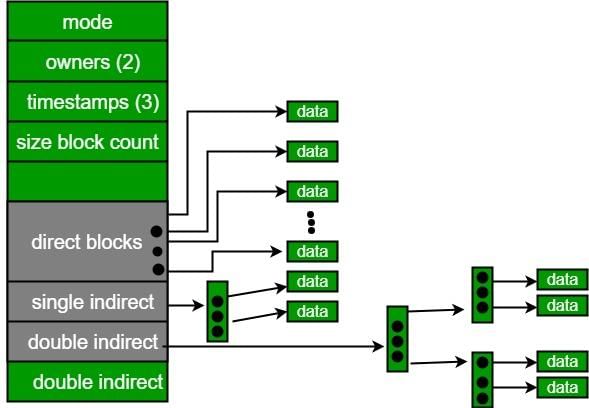Test: File Systems - 1 - Computer Science Engineering (CSE) MCQ
15 Questions MCQ Test - Test: File Systems - 1
Which of the following is major part of time taken when accessing data on the disk?
Put the following disk scheduling policies results in minimum amount of head movement.
| 1 Crore+ students have signed up on EduRev. Have you? Download the App |
A file system with 300 GByte disk uses a file descriptor with 8 direct block addresses, 1 indirect block address and 1 doubly indirect block address. The size of each disk block is 128 Bytes and the size of each disk block address is 8 Bytes. The maximum possible file size in this file system is
A computer handles several interrupt sources of which the following are relevant for this question.
. Interrupt from CPU temperature sensor (raises interrupt if CPU temperature is too high)
. Interrupt from Mouse(raises interrupt if the mouse is moved or a button is pressed)
. Interrupt from Keyboard(raises interrupt when a key is pressed or released)
. Interrupt from Hard Disk(raises interrupt when a disk read is completed)
Which one of these will be handled at the HIGHEST priority?
A CPU generally handles an interrupt by executing an interrupt service routine
A hard disk has 63 sectors per track, 10 platters each with 2 recording surfaces and 1000 cylinders. The address of a sector is given as a triple (c, h, s), where c is the cylinder number, h is the surface number and s is the sector number. Thus, the 0th sector is addressed as (0, 0, 0), the 1st sector as (0, 0, 1), and so on The address <400,16,29> corresponds to sector number:
For a magnetic disk with concentric circular tracks, the seek latency is not linearly proportional to the seek distance due to
The data blocks of a very large file in the Unix file system are allocated using
Which of the following statements about synchronous and asynchronous I/O is NOT true?
A device with data transfer rate 10 KB/sec is connected to a CPU. Data is transferred byte-wise. Let the interrupt overhead be 4 microsec. The byte transfer time between the device interface register and CPU or memory is negligible. What is the minimum performance gain of operating the device under interrupt mode over operating it under program controlled mode?
Suppose a disk has 201 cylinders, numbered from 0 to 200. At some time the disk arm is at cylinder 100, and there is a queue of disk access requests for cylinders 30, 85, 90, 100, 105, 110, 135 and 145. If Shortest-Seek Time First (SSTF) is being used for scheduling the disk access, the request for cylinder 90 is serviced after servicing ____________ number of requests.
Consider an operating system capable of loading and executing a single sequential user process at a time. The disk head scheduling algorithm used is First Come First Served (FCFS). If FCFS is replaced by Shortest Seek Time First (SSTF), claimed by the vendor to give 50% better benchmark results, what is the expected improvement in the I/O performance of user programs?
Consider a disk drive with the following specifications: 16 surfaces, 512 tracks/surface, 512 sectors/track, 1 KB/sector, rotation speed 3000 rpm. The disk is operated in cycle stealing mode whereby whenever one byte word is ready it is sent to memory; similarly, for writing, the disk interface reads a 4 byte word from the memory in each DMA cycle. Memory cycle time is 40 nsec. The maximum percentage of time that the CPU gets blocked during DMA operation is:
Using a larger block size in a fixed block size file system leads to :





















